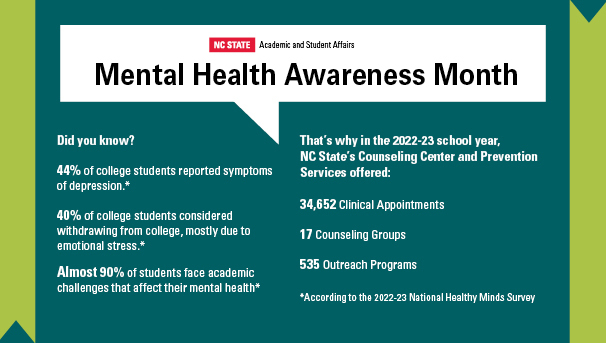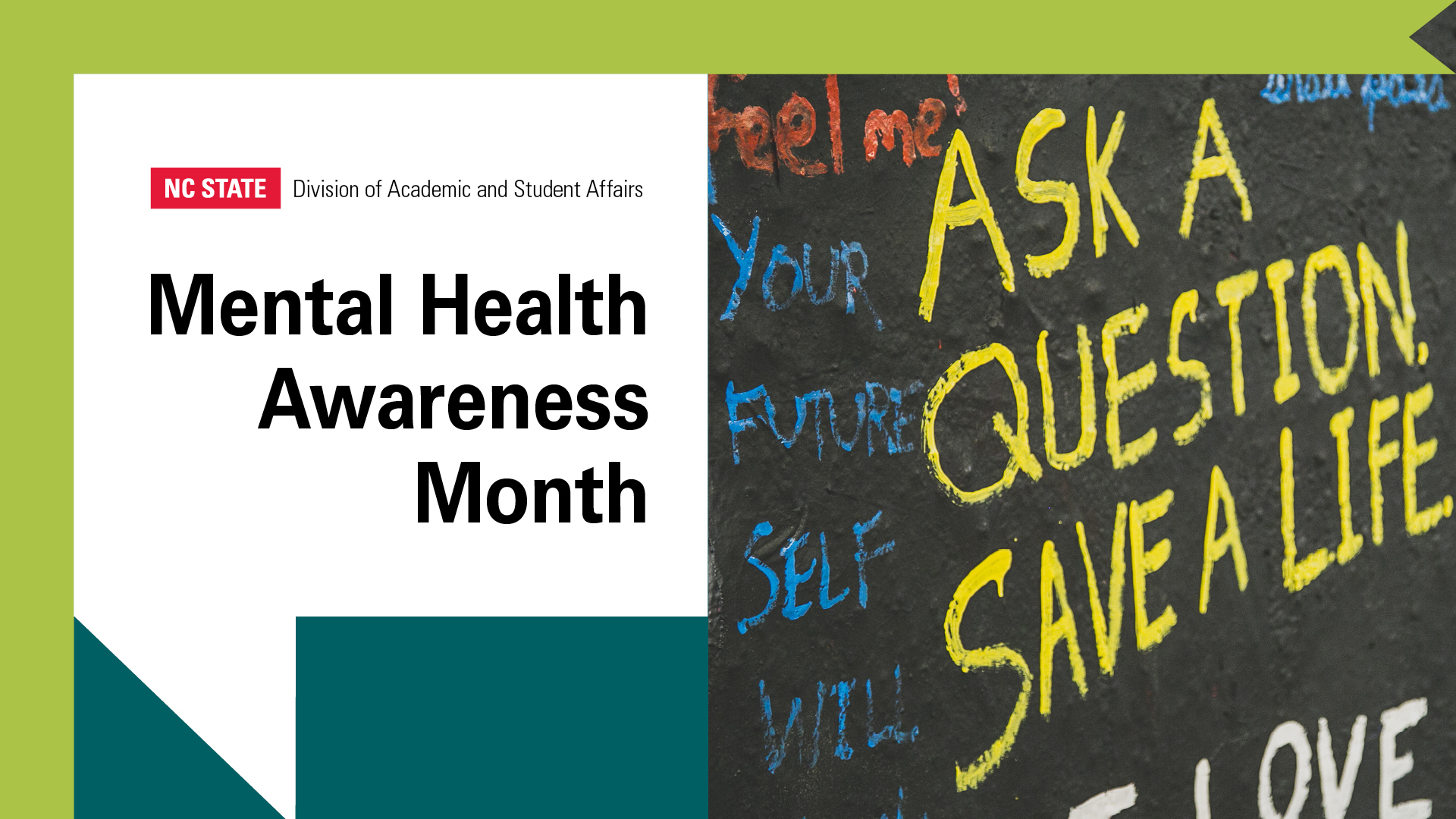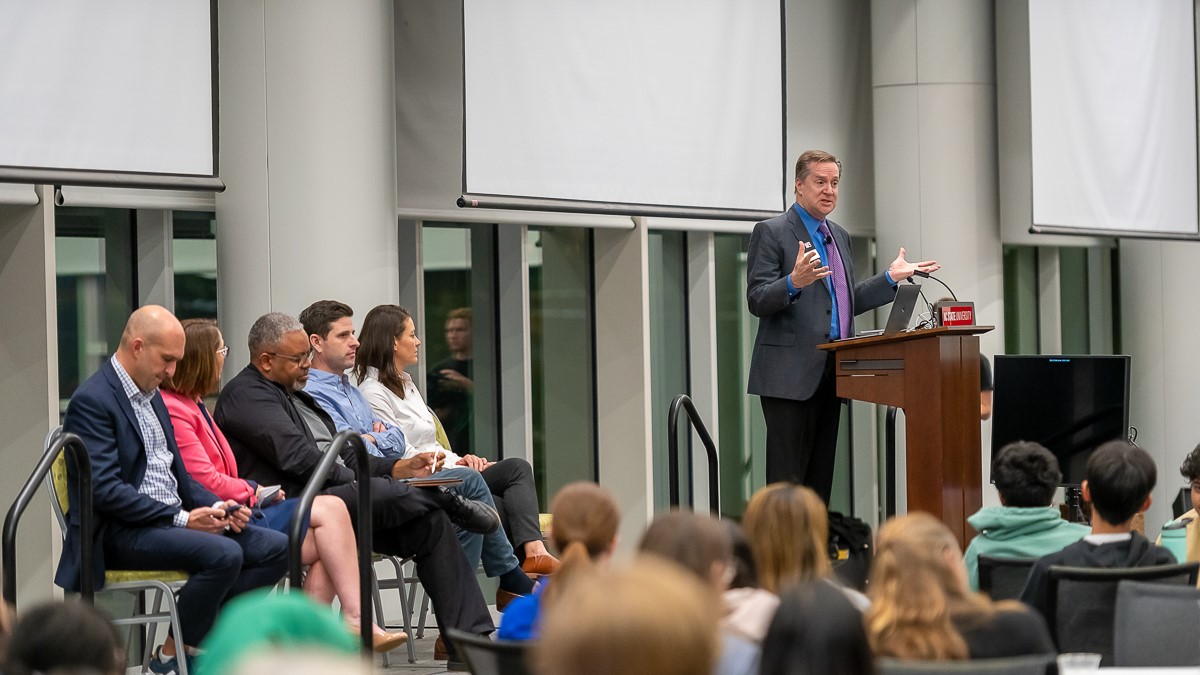May is Mental Health Awareness Month, and at NC State, that means highlighting the importance of the work at the Counseling Center and Prevention Services. From individual and group counseling to education to wellness events, these programs enhance the experience of students, faculty and staff during their time at the university.
Lily Palmer ’24 and Lilly Kirn ’26 are Mental Health Ambassadors. Their role is to provide classmates with mental health education as well as connect them to the available campus resources. Want to support their work? Visit the crowdfunding page to support the Mental Health Awareness Month campaign.
Why is mental health important at NC State?
Lily Palmer: Mental health is important at NC State because of how prevalent mental health disorders like depression and anxiety are among college-age students. College is often the first time that somebody is away from home, and while there are a lot of fun and exciting things that occur during that new time of independence, it can also be really isolating. Having strong mental health support at NC State is extremely crucial for student success.
Lilly Kirn: One of the biggest things that we want to emphasize as mental health ambassadors is the overall wellness of a student, so it’s important to incorporate ways to practice physical wellness, academic success and mental health for a well-rounded experience.

How have the Counseling Center and Prevention Services impacted you and/or your classmates?
Palmer: They’ve impacted me personally by connecting me to off-campus counseling resources. I was originally an out-of-state student who had different issues with insurance access and coverage. Because of this resource, I was able to get a grant through the Counseling Center to help find mental health support.
Kirn: Because of the Counseling Center and Prevention Services, I’ve been able to get in contact with a long-term therapist, as well as find resources to help some of my friends and peers who were struggling with mental health disorders.
What do you find rewarding about being a Mental Health Ambassador?
Palmer: Being an ambassador is a really fun and rewarding experience. I get to connect students to mental health-related resources on campus and also just have conversations that they might not be having elsewhere around campus. Connecting students to resources that can potentially be life-changing to them is really rewarding. And I’ve also grown a really tight-knit community through the mental health ambassador program. A lot of the mental health ambassadors want to go into counseling in the future. It can be hard to feel so much empathy for students through difficult situations, but we have the resources to connect them to mental health professionals who can support them through crises.
Kirn: I love being a mental health ambassador because it has helped me find a tight-knit group of people who share my passion and my drive to help other students reach mental health services. It’s also really rewarding to see students progress and knowing that you’re the start of change on campus. It’s great to go to a school where you get to be the start of these programs that are going to make a lasting change.
What are the Counseling and Prevention Services programs you recommend the most in your role?
Palmer: I mostly end up recommending individual and group counseling. That’s probably our largest service. We also have drop-in spaces and group therapy, which are themed around different interest groups so students can find something in common and meet people. These are really good ways to start using the Counseling Center, because it can feel less intimidating than an individual or one-on-one session.
We also utilize CARES referrals a lot, which enables us to get students connected to different services, not only Counseling and Prevention Services, but also elsewhere on campus.
Kirn: I recommend CARES referrals the most, which is a way for other students, staff and faculty to reach out to someone that they care about and connect them with a professional if they’re concerned about how they’re doing — something as basic as them not getting enough sleep at night or something more serious and life-threatening, such as suicidal ideation or a mental health disorder.
I also always like to recommend the Lighten your Pack list of essential resources on campus. It’s a filterable list made of every mental health resource on campus, as well as other resources.
Why should people support the Counseling Center and Prevention Services?
Palmer: People should support the Counseling Center and Prevention Services because they’re truly providing life-saving services to students at NC State. It’s adding a sense of community to our experience and making students feel less alone.
Kirn: These programs provide a safe space for students to come to and learn about different mental health disorders and mental health awareness. It also creates a great community for students who are passionate about mental health, and really allows those students to collaborate with staff.
- Categories:



